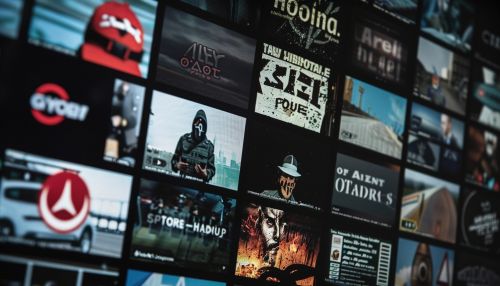Illegal content
Definition and Scope
Illegal content refers to any material that is prohibited by law from being published, distributed, or accessed. This can include a wide range of content types, such as child pornography, hate speech, pirated software, and terrorist propaganda. The definition and scope of illegal content can vary significantly between different jurisdictions, reflecting local laws, cultural norms, and societal values.
Types of Illegal Content
Child Pornography
Child pornography is one of the most universally condemned forms of illegal content. It involves the depiction of minors in sexual acts or poses and is illegal in almost every country. The United Nations and various international treaties, such as the Convention on the Rights of the Child, have established frameworks for combating child pornography. Law enforcement agencies around the world, including Interpol and the Federal Bureau of Investigation, actively work to identify and prosecute individuals involved in the creation, distribution, and consumption of child pornography.
Hate Speech
Hate speech refers to any communication that belittles or discriminates against individuals or groups based on attributes such as race, religion, ethnic origin, sexual orientation, disability, or gender. The legal boundaries of hate speech can be complex and vary widely. For instance, European Union member states have stringent laws against hate speech, whereas the United States protects most forms of speech under the First Amendment. Despite these differences, many countries have enacted laws to curb hate speech, recognizing its potential to incite violence and discrimination.
Pirated Software
Pirated software, also known as "warez," refers to unauthorized copies of software that are distributed without the permission of the copyright holder. This form of illegal content infringes on intellectual property rights and can have significant economic impacts. Organizations such as the Business Software Alliance and the International Federation of the Phonographic Industry actively combat software piracy through legal actions and public awareness campaigns. Pirated software is often distributed through peer-to-peer networks and torrent sites, making it challenging to regulate and control.
Terrorist Propaganda
Terrorist propaganda includes materials that promote or glorify terrorist activities, recruit individuals to terrorist organizations, or incite acts of terrorism. Governments and international bodies, such as the United Nations Security Council, have implemented measures to counter the spread of terrorist propaganda, particularly online. Platforms like YouTube, Facebook, and Twitter have developed algorithms and policies to detect and remove such content swiftly. However, the decentralized nature of the internet makes it difficult to eradicate completely.


Legal Frameworks and Enforcement
International Laws
International laws play a crucial role in defining and combating illegal content. Treaties and conventions, such as the Budapest Convention on Cybercrime, provide a framework for international cooperation in addressing cybercrimes, including the distribution of illegal content. These agreements facilitate the sharing of information and resources between countries, enabling more effective enforcement actions.
National Laws
National laws vary widely in their definitions and penalties for illegal content. For example, Germany's Network Enforcement Act (NetzDG) requires social media platforms to remove illegal content within 24 hours of notification, while China has stringent censorship laws that prohibit a wide range of content deemed harmful to social order. In contrast, the United States relies heavily on intermediary liability protections under Section 230 of the Communications Decency Act, which shields online platforms from being held liable for user-generated content.
Enforcement Agencies
Various agencies are responsible for enforcing laws related to illegal content. These include national law enforcement bodies, such as the Federal Bureau of Investigation (FBI) in the United States, the National Crime Agency (NCA) in the United Kingdom, and the Central Bureau of Investigation (CBI) in India. International organizations like Interpol and Europol also play significant roles in coordinating cross-border efforts to tackle illegal content.
Technological Measures
Content Filtering
Content filtering technologies are widely used to detect and block illegal content. These systems can be based on keywords, image recognition, or more advanced machine learning algorithms. For instance, Google and Facebook employ sophisticated AI-driven systems to identify and remove illegal content from their platforms. However, these technologies are not foolproof and can sometimes result in false positives or negatives.
Encryption and Anonymity
Encryption and anonymity tools, such as Tor and Virtual Private Networks (VPNs), can complicate efforts to track and remove illegal content. While these technologies provide valuable privacy protections for users, they can also be exploited by individuals seeking to distribute illegal content without detection. Law enforcement agencies often face challenges in balancing the need for privacy with the need to combat illegal activities.
Blockchain and Decentralization
The rise of blockchain technology and decentralized platforms presents new challenges for regulating illegal content. Decentralized platforms, such as IPFS (InterPlanetary File System), allow content to be distributed across a network of nodes, making it difficult to remove once it has been uploaded. While these technologies offer benefits in terms of resilience and censorship resistance, they also pose significant regulatory challenges.
Ethical Considerations
Freedom of Speech
One of the primary ethical dilemmas in regulating illegal content is balancing the need to protect society from harmful material with the right to freedom of speech. Different countries have different thresholds for what constitutes acceptable speech, leading to ongoing debates about the limits of free expression. For instance, while hate speech laws aim to prevent harm, critics argue that they can be used to suppress dissent and stifle legitimate discourse.
Privacy and Surveillance
Efforts to combat illegal content often involve monitoring and surveillance, raising concerns about privacy and civil liberties. Technologies like deep packet inspection and facial recognition can be used to identify and track individuals involved in illegal activities, but they also have the potential to infringe on the privacy of innocent users. Striking a balance between effective enforcement and the protection of individual rights remains a significant challenge.
Algorithmic Bias
The use of algorithms to detect and remove illegal content can introduce biases, leading to disproportionate impacts on certain groups. For example, automated systems may be more likely to flag content from minority communities as hate speech, or they may fail to recognize context in satirical or educational material. Ensuring that these technologies are fair and unbiased is an ongoing area of research and development.
